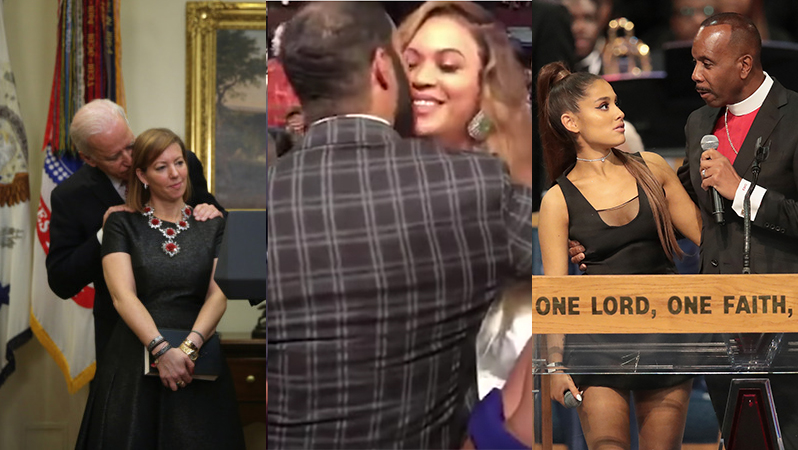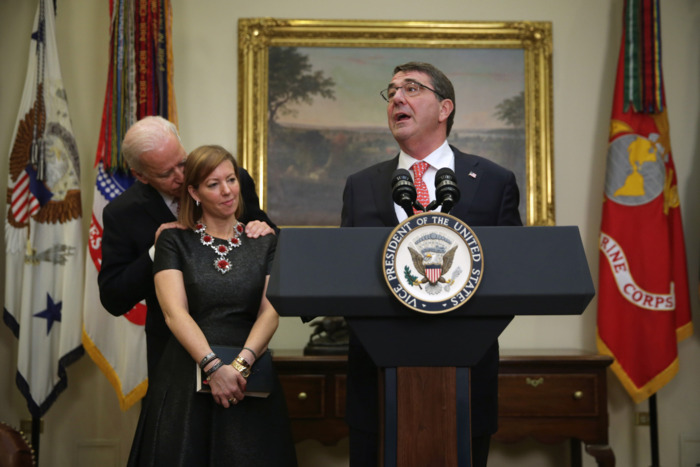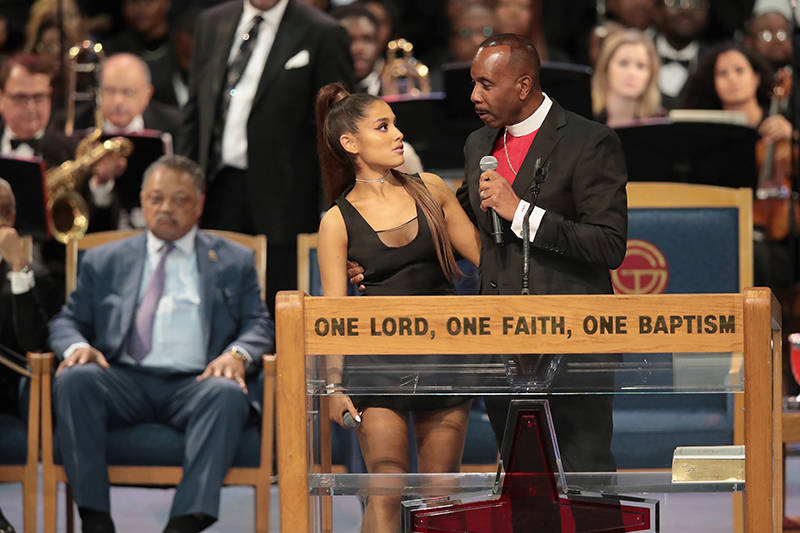Last weekend at the NAACP Image Awards, actor Omari Hardwick made headlines for the wrong reasons: invading Beyoncé’s space. Hardwick came over to greet Beyoncé and Jay-Z, and planted a kiss on Beyoncé’s cheek. Then, he doubled back and planted another kiss, this time uncomfortably close to Bey’s mouth. Her face twisted into a subtle cringe.
Beyoncé, Biden and the Banality of Casual Creepiness

Just days before, the 2014 nominee for Nevada lieutenant governor, Lucy Flores, published a viral essay about an uncomfortable, similar incident that happened during her campaign. Moments before she took the stage at a speaking engagement, then-vice president Joe Biden—there to endorse her as a candidate—planted a “big, slow kiss” on the back of her head and “inhaled” her hair.
“He was there to promote me as the right person for the lieutenant governor job,” she wrote. “Instead, he made me feel uneasy, gross and confused. The vice president of the United States of America had just touched me in an intimate way reserved for close friends, family or romantic partners—and I felt powerless to do anything about it.”
After Flores’ essay ran, numerous photos of Biden nuzzling, kissing and hugging women and girls from behind at public events resurfaced, stirring up debates about whether his “creepy uncle” vibe would hinder his viability as a presidential candidate. Like clockwork, Biden’s supporters accused Flores of attempting to sabotage his possible run. And like clockwork, Biden responded in a statement, denying wrongdoing. “Not once—never—did I believe I acted inappropriately. If it is suggested I did so, I will listen respectfully,” his statement reads. “But it was never my intention.”

It’s hard not to notice the parallels between Biden and Hardwick’s behavior. Both incidents may not have been invasive enough to rise to the level of sexual assault, and no one’s pressing charges here—Beyoncé hasn’t commented, and Flores says Biden didn’t do anything illegal—but this banal form of creepiness, subtle enough to give the offending party plausible deniability, is just one of the world’s many ways of signaling that women don’t have complete control over what happens to our bodies. It seems that no matter how accomplished, professional or polished a woman is—even if she’s Beyoncé—some man will always find a way to disregard her personal space because he feels like touching her.
For women, these small invasions of personal space are a constant of everyday life, and figuring out quiet ways to duck and dodge them is taxing. There’s the acquaintance who holds what was supposed to be a quick hug hello for way too long, leaving us trapped and wondering how to get out of their embrace without “making it weird.” There are the men who “accidentally” rub up against us on public transit; the ones who squeeze past us in crowded rooms while touching the smalls of our backs; the ones who linger watching us at the gym.
This behavior is nothing new, but times are changing. When Adrien Brody surprise-kissed Halle Berry at the Oscars 11 years ago, it was widely celebrated as a magical awards-show moment. (Berry has said that she “doesn’t know” if she enjoyed it.) The public’s response was decidedly different a decade later, when a pastor put his hand a little too close to Ariana Grande’s breast at Aretha Franklin’s funeral, or when actress Claire Foy deflected Adam Sandler’s hand on her knee during a talk show.

When these behaviors happen in public, our brains quickly calculate risk: Do I tolerate a few seconds of discomfort hoping he’ll leave me alone afterwards, or do I speak out and draw more unwanted attention to myself—or worse, provoke anger and retaliation?
Men like Biden and Hardwick hide under the subtlety of their creepiness because how commonplace it is makes it easy to dismiss. But when women and girls are made to live like Ms. Pac-Man, evading potential pursuers day in and day out, it conditions us to question our own bodily autonomy. It puts us on edge. It causes us to question our sanity—whether we’re the only ones turning it into a big deal, since it’s happening in plain sight and no one seems to care. It’s hard to find a voice to speak out when that’s the case, and that needs to change.
Nancy Pelosi told Biden to “join the straight-arm club” and keep his hands to himself. I’m not calling for a moratorium on friendly hugs, but it would behoove more men to do the same.

